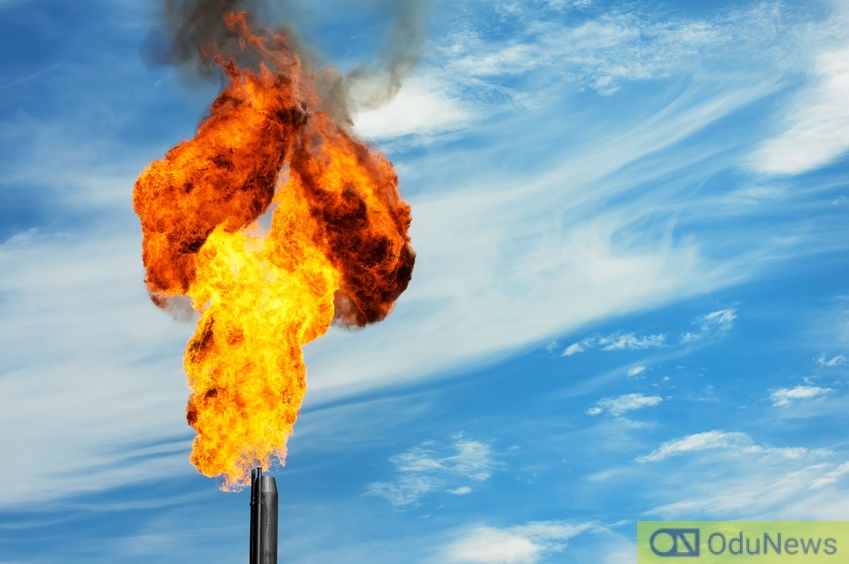Gas flaring in Nigeria increased in the first half of 2022 as the worth of gas flared between January and June 30 2022, stood at $441.2 million, OduNews reports.

According to OduNews analysis of data culled from the Nigerian Oil Spill Monitor, within the first six months of 2022, oil and gas companies flared 126bn standard cubic feet (SCF) of gas resulting in 6.7million tonnes of carbon dioxide (CO2) emissions and an equivalent amount of US$441.2m lost.
In 2021, the gas flare stood at 136.6bn standard cubic feet of gas, resulting in 7.3million tonnes of carbon dioxide (CO2) emissions and an equivalent amount of US$478.1m lost in H1 2021.
For the full year 2021, the country flared 255.2bn standard cubic feet of gas, resulting in 13.6million tonnes of carbon dioxide (CO2) equivalent emissions with an equivalent amount of US$893.1m lost.
The World Bank’s Global Gas Flaring Reduction Partnership (GGFR) in its 2022 global gas flaring tracker report ranked Nigeria as the 7th largest gas flaring country globally in 2021.
Based on the satellite data, about 143.4 billion cubic meters (bcm) equivalent of c.5.1tn standard cubic feet of gas was flared at upstream oil and gas facilities across the globe in 2021, resulting in 382.4 million tonnes of carbon dioxide (CO2) equivalent emissions with an equivalent amount of US$16.5bn lost
Gas flaring in Nigeria has been an insurmountable problem for the country, especially in the Niger Delta region (Rivers, Akwa Ibom, Bayelsa and Imo state) since the commercial exploration of crude oil started.
The country has on several occasions set a target to end gas flaring, which all have been missed with the most recent unmet deadline in the year 2020. In February 2021, the Minister of State for Petroleum Resources, Timipre Sylva, noted that the government had committed to achieving a complete elimination of gas flaring by the year 2025, before the World Bank’s Zero Routine Flaring by 2030.
Meanwhile, the Federal Government continues to lose potential revenue to gas flaring. As seen by both the NOSDRA data and World Bank report, Nigeria lost potential income of between US$761.2m and US$893.1m to gas flaring in 2021.
Beyond that, the agricultural ecosystem of the Niger Delta has been severely damaged. Due to increased soil temperature, crop yield has been affected with many lands now barren.
Furthermore, water bodies are now black while rainfall in the area is also black destroying many homes. The black water bodies have destroyed fishing potential while burning bushes and lands have forced animals to desert the forests in the area.

Submit press release, news tips to us: tips@odunews.com | Follow us @ODUNewsNG
